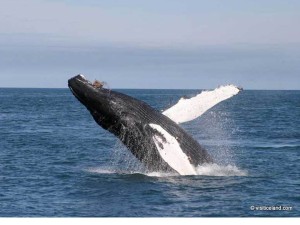We hear a lot today about the evils of fossil fuels. Sadly from what I have experienced, based on my now well over 100 radio interviews and public presentations, many Americans really don’t understand where their energy comes from. Last fall I got a phone call from a reporter for a major Los Angeles, CA newspaper. She wanted to know why the oil industry works on oil wells after they are drilled. This was a simple 5 minute conversation. Then she added, “Mr. Kozera, we have a lot of oil wells here in southern California. This crude oil, what do we do with it?” I thought it was a trick question so I said, “Excuse me.” She continued, “What do we use crude oil for?” I was surprised and responded, “We refine it into gasoline so that you can drive your car.” “Have we been doing that for long?” she asked. “Only about 100 years and before crude oil we used whale oil.” I responded. “Wow, that’s fascinating.” She was serious. We then had an hour long discussion about crude oil. Where talked about where it comes from and all of the things we use it for like plastics, other household products and of course motor fuels. This reporter had a new understanding of the value of crude oil when we finished.
The oil industry never gets credit for saving whales but that is exactly what happened. In the early 1800s the United States had a whaling industry consisting of several hundred ships based primarily in New England. Herman Melville’s book Moby Dick is a based on whaling. In the 1800s whales were like swimming oil wells. Their blubber was used to create whale oil which was used for lighting, lubrication and to make a variety of other products like candles. Then in 1859 Edwin Drake drilled what is considered to be the first commercial oil well, in Titusville, PA starting the United States oil industry. Crude oil from oil wells was refined into kerosene at a much cheaper price than whale oil. Demand for whale oil plummeted and most of the whaling industry went out of business. Thanks to the American oil industry our incredible, beautiful whales are not extinct today.
I learned about the Drake well in 4th grade and I experienced the Arab Oil Embargo of the 1970s. I saw the price of gasoline go up during the embargo and I sat in long lines on the day I was allowed to buy gasoline due to shortages. We learned the hard way that world crude oil prices determine our price at the pump. My reporter friend and many other younger people today never experienced this. The USA was helpless to do anything about it because our domestic crude oil supplies were declining. This was the case for 4 decades. Only recently, thanks to horizontal drilling and hydraulic fracturing (or fracking) the USA became a world oil power because of hundreds of small oil and gas companies NOT “Big Oil”.
We need to learn from our past. We have two presidential candidates and other so called environmental groups that want to ban fracking. We frack almost EVERY WELL in this country, natural gas wells AND oil wells. No fracking means going back to the days of the Arab Oil Embargo and $5+ gasoline when we can get it. Do they also want us to go back to whale oil? We hear a lot about bio fuels. We are still adding ethanol made from corn to our gasoline. With millions of starving people here and around the world is this moral? We have abundant oil. Shouldn’t our farms be used to produce food? Leaders understand the importance of truth. My reporter friend now knows the truth and she can make good decisions. We need to know where our energy really comes from and educate other Americans. Our freedom and future depend on it. Thoughts to ponder.
© 2016 Greg Kozera

